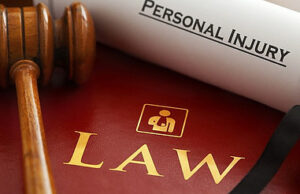Welcome to an eye-opening article on gaslighting in the UK. Did you know that gaslighting is considered a criminal offence in the United Kingdom? This form of psychological manipulation, designed to make someone question their reality, emotions, and sanity, is now recognized and punishable by law in the UK. Stay tuned as we delve into the definition of gaslighting, its effects on victims, and the legal consequences for perpetrators. Gaslighting Is A Criminal Offence In The UK, Gaslighting

What is Gaslighting?
Gaslighting is a form of psychological manipulation in which the abuser seeks to make their victim doubt their own sanity and perception of reality. It involves making the victim question their memory, perception, and sanity through a series of lies, denial, and misdirection. Gaslighting is a serious form of emotional abuse that can have long-lasting effects on the victim’s mental health and well-being.
Recognizing Gaslighting Tactics
Gaslighting tactics can take many forms, and it is important to be able to recognize them in order to protect yourself from this form of abuse. Some common gaslighting tactics include:
- Denying – The abuser denies that events or conversations took place, making the victim question their memory.
- Lying – The abuser tells blatant lies to make the victim doubt their own perception of reality.
- Belittling – The abuser belittles the victim’s thoughts and feelings, making them feel small and insignificant.
- Projecting – The abuser accuses the victim of behavior that they themselves are guilty of, deflecting attention away from their own actions.
Recognizing these tactics can help you identify when someone is trying to gaslight you and take steps to protect yourself from further manipulation.
Effects of Gaslighting
The effects of gaslighting can be devastating and long-lasting. Victims of gaslighting may experience:
- Confusion – Victims may feel confused and disoriented as a result of the abuser’s manipulation.
- Doubt – Victims may begin to doubt their own memory and perception of reality.
- Low self-esteem – Gaslighting can erode a victim’s self-esteem and self-worth over time.
- Isolation – Gaslighting can lead to the victim becoming isolated from friends and family, as the abuser seeks to control their relationships.
If you are experiencing any of these effects, it is important to seek help and support from a trusted friend, family member, or mental health professional.

Gaslighting as a Criminal Offence in the UK
In the UK, gaslighting is now recognized as a criminal offence under the Serious Crime Act 2015. This means that individuals who engage in gaslighting behavior can be prosecuted and face criminal charges for their actions. Gaslighting is considered a form of coercive control, which is defined as a pattern of behavior that seeks to dominate and control another person through manipulation and abuse.
Coercive Control
Coercive control is a form of domestic abuse that can have serious and long-lasting effects on the victim’s mental and emotional well-being. It involves a pattern of controlling, threatening, and coercive behavior that is used to intimidate, manipulate, and control the victim. Gaslighting is often a key component of coercive control, as the abuser seeks to undermine the victim’s sense of reality and control.
Recognizing Coercive Control
It is important to be able to recognize the signs of coercive control in order to protect yourself or someone you care about from this form of abuse. Some common signs of coercive control include:
- Isolation – The abuser seeks to isolate the victim from friends and family, making them dependent on the abuser.
- Monitoring – The abuser monitors the victim’s every move, including phone calls, texts, and social media.
- Threats – The abuser uses threats and intimidation to control the victim’s behavior.
- Gaslighting – The abuser engages in gaslighting behavior to undermine the victim’s sense of reality.
If you suspect that you or someone you care about is experiencing coercive control, it is important to seek help and support from a trusted friend, family member, or domestic abuse helpline.

How to Protect Yourself from Gaslighting
If you are experiencing gaslighting or coercive control, there are steps you can take to protect yourself and seek help. Here are some tips for protecting yourself from gaslighting:
- Recognize the Signs – Educate yourself about the signs of gaslighting and coercive control so that you can identify when someone is trying to manipulate you.
- Trust Your Instincts – Trust your instincts and feelings, even if someone is trying to make you doubt them.
- Seek Support – Reach out to a trusted friend, family member, or mental health professional for support and guidance.
- Set Boundaries – Establish boundaries with the person who is gaslighting you and stick to them.
- Seek Legal Help – If you are being subjected to gaslighting or coercive control, consider seeking legal advice and support.
By taking these steps, you can protect yourself from gaslighting and begin to heal from the effects of this form of abuse.
Case Study: Gaslighting in a Relationship
Let’s consider a hypothetical case of gaslighting in a relationship to illustrate how this form of abuse can manifest and its effects on the victim.
Sarah is in a relationship with Jack, who begins to exhibit gaslighting behavior towards her. Whenever Sarah tries to bring up concerns or issues in their relationship, Jack denies that the events occurred or tells Sarah that she is overreacting. He belittles Sarah’s feelings and accuses her of being overly sensitive. Jack also isolates Sarah from her friends and family, making her dependent on him for social interaction.
As a result of Jack’s gaslighting tactics, Sarah begins to doubt her own perception of reality and feels confused and disoriented. She also experiences low self-esteem and struggles to trust her own thoughts and feelings. Sarah’s mental health suffers as a result of Jack’s manipulation, and she feels trapped in the relationship.
In this case, Sarah is a victim of gaslighting and coercive control, and it is important for her to seek help and support in order to protect herself from further abuse.

Conclusion
Gaslighting is a serious form of emotional abuse that can have devastating effects on the victim’s mental health and well-being. In the UK, gaslighting is now recognized as a criminal offence under the Serious Crime Act 2015, and individuals who engage in gaslighting behavior can face criminal charges for their actions. It is important to be able to recognize the signs of gaslighting and coercive control in order to protect yourself and seek help if you are experiencing abuse.
If you or someone you care about is experiencing gaslighting or coercive control, it is important to seek help and support from a trusted friend, family member, or mental health professional. Remember that you are not alone, and there are resources available to help you heal from the effects of gaslighting and begin to rebuild your sense of self-worth and confidence.





